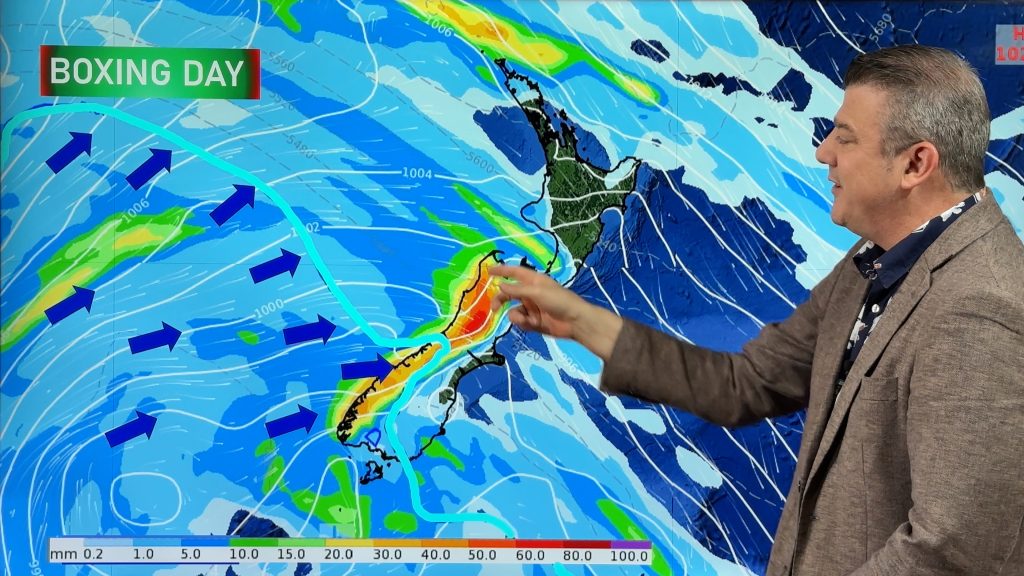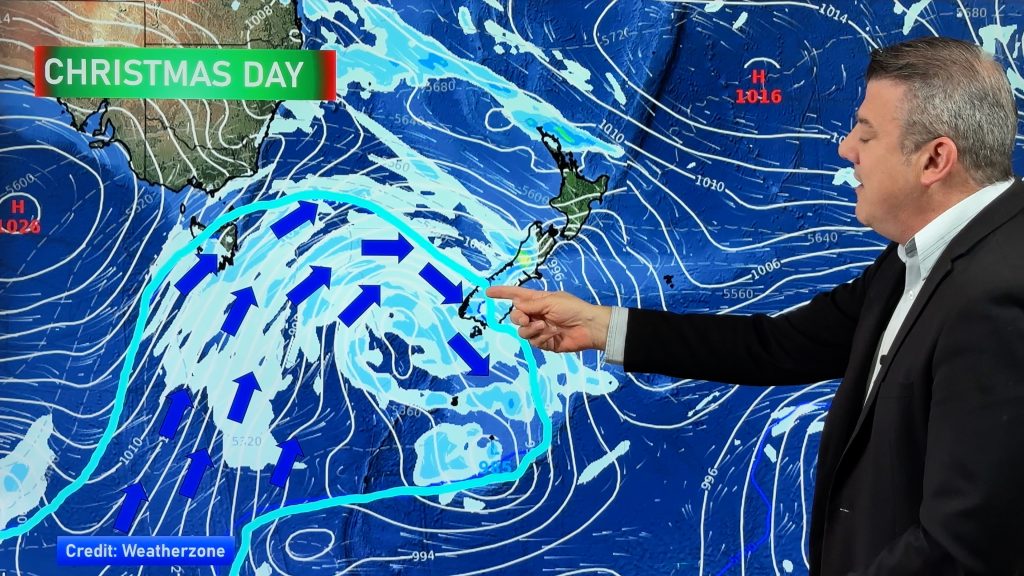Dec 31: Looks spring-like, Jan 1: Here come the highs
28/12/2023 9:30am

> From the WeatherWatch archives
It will be colder in the lower South Island and hottest in the eastern North Island for New Year’s Eve, says WeatherWatch.co.nz.
A cold front will move up the country this coming Sunday, December 31, and it will bring a spring-like end to 2023. “It will be hottest in the north east of the North Island, but a cold front moving up the South Island will bring a much lower daytime high for places like Queenstown” says head forecaster Philip Duncan.
WeatherWatch.co.nz is currently forecasting a high of only +12c for Queenstown on December 31 and just 11c in Milford Sound. Southland will be similar with highs around +13c and wet weather as the cold front comes in.
But further north the NW airflow ahead of the front will boost temperatures significantly for North Islanders. “The upper South Island will be mild but not overly warm due to thick cloud and approaching rain clouds. The eastern North Island will be hottest with Hawke’s Bay and Gisborne both contenders to be in the upper 20s or even into the low 30s this Sunday if the sun comes out – but it depends on cloud cover during the hottest part of the day” says Duncan.
Wet weather will move up NZ from the south and west across Sunday and Sunday night. This will also ease the sub-tropical air moving over Northland, with overnight lows on Saturday night/Sunday morning around 20c, but in the mid teens by Sunday night/Monday morning.
By January 1 high pressure is moving in from the west – and some places will kick off with a colder start on Monday January 1st as a result of Sunday’s cold front. But high pressure will bring a much more settled start to 2024 than the two weeks of weather that ended 2023.
Being El Nino high pressure is more likely to be parked towards Tasmania or over the Tasman Sea, encouraging more west to south west flows into NZ which are cooler and wetter for the lower and western South Island but drier and hotter for eastern areas further north up the country.
“Historically, December in New Zealand can be very up and down weather-wise, with more summer like weather traditionally in January and February and the first half of March” Duncan says.
Use www.RuralWeather.co.nz to plan outdoor events or camping this weekend or summer!
*Programming Notes:
- WeatherWatchTV has three final videos of 2023
- We have TWO videos out today, Thursday Dec 28. 1) Outlook for NZ going into New Year’s Eve and New Year’s Day. 2) Australia 7 Day forecast.
- We have ONE final video for 2023 on Friday Dec 29.
- Our videos return again mid January 2024 after a 2 week break.



- WeatherWatch.co.nz / RuralWeather.co.nz
Comments
Before you add a new comment, take note this story was published on 28 Dec 2023.




Add new comment